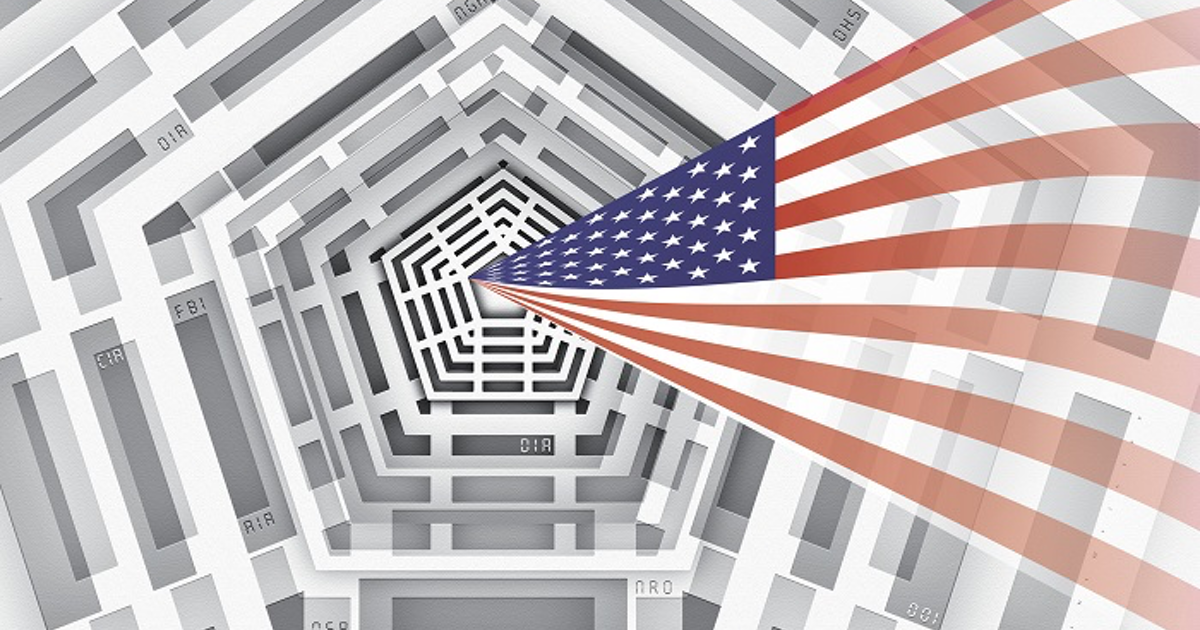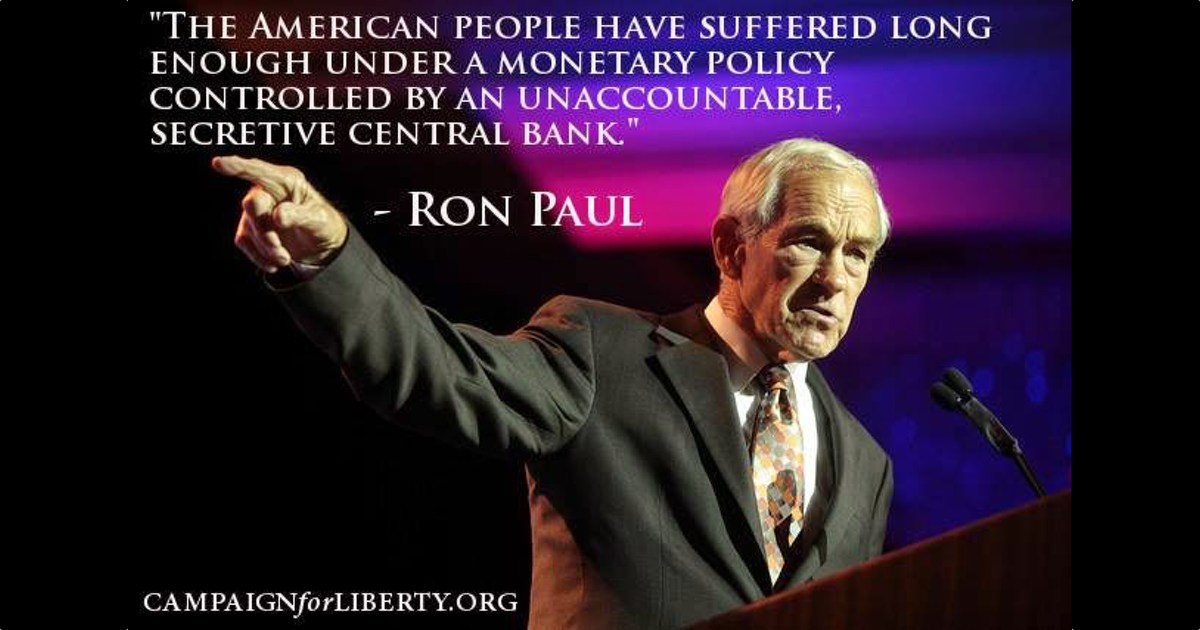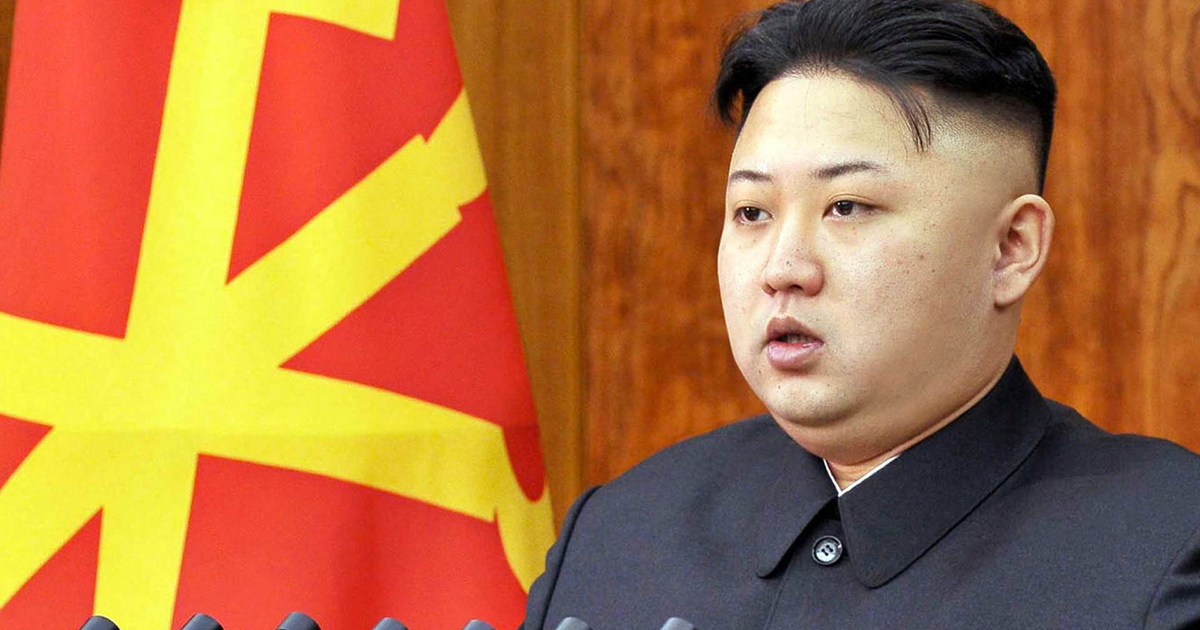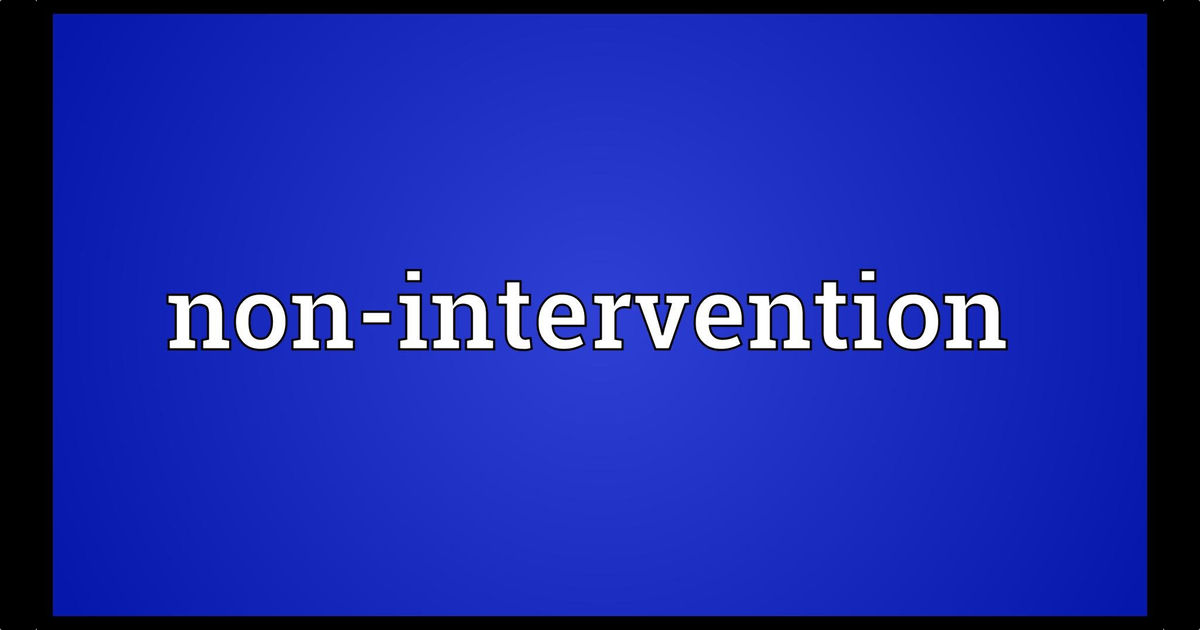|
By Jacob G. Hornberger
One of the most mystifying aspects of the Donald Trump presidency has been his caving in to the U.S. national-security establishment. Among the biggest expectations that people had for Trump was that he would be the first president since John F. Kennedy to stand up to the military, the CIA, and the NSA. There were even some hopes that he would significantly diminish U.S. interventionism abroad, including withdrawing all U.S. troops from the 16-year-old war in Afghanistan. Trump’s early hostile relations with the CIA was so bad that New York Congressman Charles Schumer was even motivated to warn, “Let me tell you, you take on the intelligence community, they have six ways from Sunday at getting back at you.” Trump’s adverse relationship with the CIA caused former senior CIA official Paul Pillar to exclaim, “The relationship is the worst of any incoming administration ever.” Not anymore. Surrounding himself with generals and giving the national-security establishment carte blanche to do anything it wants to protect “national security,” Trump, for all practical purposes, has been absorbed by the national-security establishment, even permitting the CIA to continue keeping its long-secret, 50-year-old JFK-assassination records secret from the American people. It is safe to say that for the balance of Trump’s term in office, his actions in foreign affairs will be no different than anything that Hillary Clinton, who undoubtedly would have been a loyal servant of the national-security establishment, would have done with respect to foreign affairs. What gives? Why the dramatic shift in Trump? Why didn’t he stick to his guns, like Kennedy did? The reason is found in the excellent book National Security and Double Government by Michael J. Glennon. This is a book I highly recommend reading, as it provides the best explanation for the consequences the followed the federal government’s conversion to a national-security state. Glennon has credentials. He is a professor in the law school at Tufts University. From 1977-1980, he was counsel to the Senate Foreign Relations Committee. The reason that Trump ended up caving to the national-security establishment is that it quickly dawned on him, primarily owing to the massive attacks leveled on him relating to supposed “collusion” with Russia, that it’s the Pentagon, the CIA, and the NSA that are in charge of the federal government, not the president, not Congress, and not the federal judiciary. Trump came to the realization that for all practical purposes, he, like everyone else in the executive, legislative, and judicial branches, works for the national-security section of the government, not the other way around. What is a national security state? It’s a particular type of governmental structure, one that is inherent to totalitarian regimes. North Korea is a national-security state. So is China. So is Egypt. So is the United States. A national-security state consists of three primary components, all of which can be centralized into one entity or divided into separate departments and agencies. One component is a massive military establishment, one that plays a dominant role in society, both economically and sociologically. Another component consists of covert state-sponsored assassinations and cover-ups. The third component is secret monitoring of the citizenry — e.g., secretly listening in on telephone conversations, secretly reading people’s emails, secretly watching what people do on the Internet, and keeping secret files on people. In the United States, these three components are divided into three entities — the military establishment, the CIA, and the NSA. It’s interesting to compare the Egyptian national-security state with the U.S. national-security state. When Mohamad Morsi was elected president of Egypt, the big mistake he made was in thinking that he was in charge and that the military establishment answered to him since he was president. Morsi learned what Trump has learned: that it was actually the Egyptian military, which had long controlled the country (with the full support of the U.S. government) that was simply permitting Morsi to be president. Once he got out of line and became a bit too independent, they simply ousted him, arrested him, and incarcerated him, while restoring full military control over the country, with U.S. foreign aid, especially armaments, continuing to flood into the country. It’s easy to recognize Egypt as a full-fledged national-security state because the military-intelligence establishment fully controls the government and, like the U.S. military-establishment plays a major role in the Egyptian economy and society. It appears to be different here. That’s because when the federal government was converted into a national-security state, the national-security establishment decided that it would be expedient to continue permitting the other three branches of the federal government to continue operating, even to the point of letting them continue the illusion that they were the ones actually in charge of the government. That is, it has never mattered to the Pentagon, the CIA, and the NSA that people perceive that the other three branches are in control of the federal government. What has mattered to the Pentagon, the CIA, and the NSA is the realty of the situation — that they are the ones who are really in charge, even if the citizenry don’t recognize it. That’s the thesis of Glennon’s book. America has double government — one that maintains the façade of being in control and the other being the part of the government that is actually in control, just like in Egypt and other societies that are based on a national-security state type of governmental structure. Why was the federal government converted into a national-security state after World War II? U.S. officials said that such a revolutionary change in America’s governmental system was necessary in order to combat the Soviet Union, which also was a national-security state. Ironically, however, when the Cold War ended some 45 years later, the U.S. national-security establishment didn’t voluntarily self-dissolve. Why should it have? Who’s going to make it do so? This article was originally published at The Future of Freedom Foundation. A recent investigation by the Daily Beast suggests US troops in Somalia were involved in the murder of ten civilians - including three children - in a small village in August. However, AFRICOM released a statement yesterday affirming that everyone killed was an enemy combatant. Should we believe them?
By Liberty Report Staff In 1931, G.K. Chesterton wrote in NY Times Magazine: “The golden age only comes to men when they have, if only for a moment, forgotten gold.” It's glaringly evident that governments, central banks, and their media arms have succeeded in conditioning everyone away gold. "Legal Tender Laws" keep their money monopoly in place for the time being. But economic reality has not changed. The long game belongs to gold. Are we on the eve of a new bull market in gold? Ron Paul shares his thoughts below in a Special Market Update: By Ron Paul It is disappointing but not surprising that Jerome Powell is likely to follow the same easy money policies as Janet Yellen. Powell’s hints at a rate increase in December should not be taken as a sign of a change in direction since any hike is likely to leave rates at record low levels. Janet Yellen is receiving much undeserved praise for her tenure as Fed chair. The truth is that Yellen’s time at the Fed was marked by historically low interest rates and money creation. Yellen’s policies benefited the economic and financial elites as well as big spending politicians. However, Yellen’s low interest rate policies failed to generate even the illusion of prosperity for middle-and-lower income Americans. Yellen’s failures where inevitable since she had the misfortune of trying to stimulate the economy with fiat currency at a time when the fiat system is reaching its end. The popularity of cyber currencies like Bitcoin and the growing movement to pass bills recognizing gold, silver, and other precious metals as legal tender are signs that more Americans are realizing that our current monetary system is unstable and are seeking alternatives to the Federal Reserve’s phony money. Before voting on the Powell nomination, Congress should take the first step toward reining in the Federal Reserve by voting on and passing Audit the Fed. This statement was originally published at Campaign for Liberty.
The US general in charge of the war in Afghanistan has announced that with the new US strategy we are "turning the corner" in the 16 year war. Where have we heard that before? Over and over since the election of Hamid Karzai in 2004! Turning the corner? Hardly!
By Liberty Report Staff
After over two years and ten million views, the Liberty Report continues to grow! We work hard to produce real news and analysis daily. On this #GivingTuesday we would really appreciate your support to keep the show going. We will acknowledge every tax-deductible donation made today in the credits of a coming Liberty Report. Donate here and see your name in lights: RonPaulInstitute.org/support The UN has again re-certified that Iran is in compliance with the P5+1 nuclear agreement. President Trump, however, refuses to re-certify to Congress that Iran is keeping the deal. According to the president, Iran is violating the "spirit" of the agreement. What does that mean?
By Ron Paul
President Trump announced last week that he was returning North Korea to the US list of “state sponsors of terrorism” after having been off the list for the past nine years. Americans may wonder what dramatic event led the US president to re-designate North Korea as a terrorism-sponsoring nation. Has Pyongyang been found guilty of some spectacular terrorist attack overseas or perhaps of plotting to overthrow another country by force? No, that is not the case. North Korea is back on the US list of state sponsors of terrorism because President Trump thinks the move will convince the government to give up its nuclear weapons and ballistic missile program. He believes that continuing down the path toward confrontation with North Korea will lead the country to capitulate to Washington’s demands. That will not happen. President Trump and Secretary of State Rex Tillerson argued that North Korea deserved to be back on the list because the North Korean government is reported to have assassinated a North Korean citizen – Kim Jong-Un’s own half-brother -- in February at the Kuala Lumpur International Airport. But what does that say about Washington’s own program to assassinate US citizens like Anwar al-Awlaki and his 16 year old son under Obama, and later Awlaki’s six year old daughter under Trump? Like Kim’s half brother, Awlaki and his two children were never tried or convicted of a crime before being killed by their own government. The neocons, who are pushing for a war with North Korea, are extremely pleased by Trump’s move. John Bolton called it “exactly the right thing to do.” Designating North Korea as a state sponsor of terrorism will allow President Trump to impose the “highest level of sanctions” on North Korea. Does anyone believe more sanctions – which hurt the suffering citizens of North Korea the most – will actually lead North Korea’s leadership to surrender to Washington’s demands? Sanctions never work. They hurt the weakest and most vulnerable members of society the hardest and affect the elites the least. So North Korea is officially a terrorism-sponsoring nation according to the Trump Administration because Kim Jong-Un killed a family member. Meanwhile, Saudi Arabia is in the process of killing the entire country of Yemen and no one says a word. In fact, the US government has just announced it will sell Saudi Arabia $7 billion more weapons to help it finish the job. Also, is it not “state-sponsorship” of terrorism to back al-Qaeda and ISIS, as Saudi Arabia has done in Syria? The truth is a “state sponsor of terrorism” designation has little to do with actual support for global terrorism. As bad as the North Korean government is, it is does not go abroad looking for countries to invade. The designation is a political one, allowing Washington to ramp up more aggression against North Korea. Next month the US and South Korean militaries will conduct a massive military exercise practicing an attack on North Korea. American and South Korean air force fighters and bombers will practice “enemy infiltration” and “precision strike drills.” Are these not also to be seen as threatening? What is terrorism? Maybe we should ask a Yemeni child constantly wondering when the next Saudi bomb overhead might kill his family. Or perhaps we might even ask a Pakistani, Somali, Iraqi, Syrian, or other child who is terrified that the next US bomb will do the same to his family. Perhaps we need to look at whether US foreign policy actually reflects the American values we claim to be exporting before we point out the flaws in others. The US State Department has announced that it is going to spend a million dollars to prop up anti-government newspapers in the Hungarian countryside, which would have a direct effect on the upcoming Hungarian elections. Isn't this what the US claims the Russians did to our elections? Is it OK if we do it?
“We fear no encroachments on our territory, nor are we tempted at present to encroach on that of others. We have no colonies, nor any desire to acquire them.” First, let's discuss the aspect of the statement that has not changed one iota since 1890: We fear no encroachments on our territory In 2017, we can say the exact same statement with total confidence. No state on the planet has any interest in conquering America. No one is interested in ruling over our WalMart/McDonald's society. No one is interested in taking over Washington D.C. and inheriting 20,000,000,000,000 in debt. No one is interested in ruling a nation of people who are in debt up to their eyeballs with student loans, auto loans, mortgage loans, credit card loans....loans...loans...loans...loans...loans... No one is interested! Which leads to the part of the statement that has changed since 1890: nor are we tempted at present to encroach on that of others. In 1898, that aspect changed, and the U.S. federal government has never looked back.
In 1898, the U.S. got its first taste of the conquering game. It swiftly took control of the Philippines, Guam, Puerto Rico, Cuba, and Hawaii. All of a sudden 11 million people were under a new American Empire. A few decades later, after the first high wore off, one of the worst decisions in the history of the world was made: U.S. President Woodrow Wilson tricked the American public into entering an exhausted and stalemated European war between princes. The "war to end all wars" was the war that would lead to the death of hundreds of millions over the next century. The rest, of course, is history, and here we are: Broke....A country with middle-class that is disappearing, and 50% of the American public receiving some kind of welfare from a bankrupt government. U.S. Naval Policy in 1890 is where it's at. The sooner we adopt it, the better. |
Archives
July 2024
|





 RSS Feed
RSS Feed



